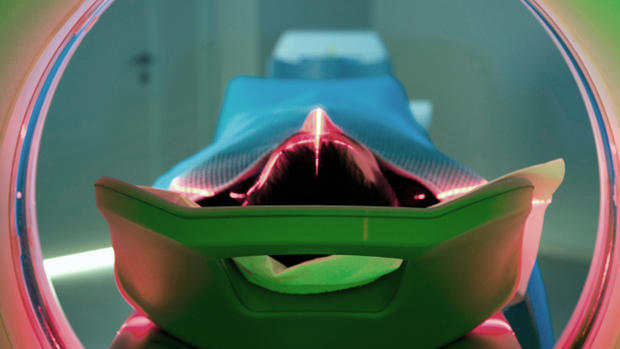Morning Rounds with Dr. LaPook: Should you get screened for artery blockage?
Former president George W. Bush's artery blockage was discovered during a routine physical on Monday, prompting doctors to suggest that the 43rd president get a stent implanted.
But routine tests for the condition at an annual physical may not be for everyone -- and could carry potential risks for unnecessary treatment.
CBS News chief medical correspondent Dr. Jon LaPook explained that over time, arteries that supply blood to the heart can become closed and filled with a waxy substance called plaque. In order to re-open the artery, doctors use a tiny, metallic mesh structure called a stent.
Doctors insert the stent using a catheter, which is a tube typically inserted in the thigh, arm or neck and threaded up through the artery. A balloon at the end of the tube is blown up and opens the blocked artery so the stent can be slipped in.
"Any procedure is potentially a serious procedure," LaPook explained. "These days [stents are] very, very safe. People do it all the time as an outpatient procedure, but every procedure carries with it risks and benefits. This certainly does have some complications, which is why you have to make sure you really do need to have this procedure before you do it."
LaPook, who did not treat the former president, said that whether a person needs a stent is usually determined from the results of an exercise stress test. During the test, patients are asked to run and walk on a treadmill while their heart's electrical activity is measured on an electrocardiogram (EKG).
Most major medical organizations including the American College of Physicians, the American Heart Association and the U.S. Preventive Services Task Force recommend against routine stress tests for people who are not having symptoms and are at low risk for heart attacks and other cardiovascular problems.
"It often leads to procedures that are not indicated," Dr. Steve Nissen, department chair of cardiovascular medicine at the Cleveland Clinic, explained to CBSNews.com. "Procedures such as a stent are only useful in people who have symptoms. If you do a stress test in somebody who doesn't have symptoms, it doesn't lead to a benefit."
In fact, LaPook says research has found at least 30 percent of elective stent procedures are inappropriate. About 80 percent of people getting elective stenting believe -- incorrectly -- that the procedure will prevent a heart attack or prolong their life.
LaPook added, "One of the important messages I think should come out of this is yes, you should get checked up routinely by your doctor, but that does not mean you should routinely get an exercise stress test if you're low risk."
Of course, there are circumstances where an exercise stress test is called for, and many heart patients may benefit from the stent procedure. If you have some risk factors for heart problems including diabetes, high blood pressure, high cholesterol or you smoke, a doctor may recommend the stress test. Having symptoms including chest pain or pain radiating down the left arm may be a warning sign of a heart attack for a doctor, who may order the stress test. Some people, usually women, may experience atypical symptoms like nausea, fatigue, jaw pain, shortness of breath or irregular heartbeats if the heart has become damaged.
LaPook said that it's these out-of-the-ordinary occurrences that people need to pay close attention to and alert their doctors about.
However, it's not necessary to demand every test in the book from your doctor to check for a heart problem, because the results may lead to invasive procedures that could put a healthy person at added risk.
"This is the day of personalized medicine," LaPook explained. "You go in and talk about your specific symptoms, your specific risk factors and figure out with your doctor what tests are appropriate."

